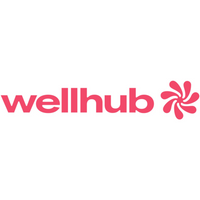How to engage employees across generations in inclusive wellbeing programmes
Each generation defines wellness differently.
Think of a colleague in their 50s versus a 23-year-old: Both need wellness to thrive, but their understanding, definitions and needs are worlds apart.
In today's workplace, understanding this is crucial for business success. Employee wellbeing directly impacts productivity, retention, and overall morale.
As 93% of workers now consider their wellbeing as crucial as their salary, creating wellness programmes that engage across generational lines is essential for business success, productivity, and employee retention.
Each of the generational groups - Baby Boomers, Generation X, Millennials, and Generation Z - has distinct values and preferences when it comes to wellbeing. Understanding these differences is vital to creating wellbeing programmes that truly move the needle.
Generational wellbeing needs
Baby Boomers (Born 1946-1964):
What they value: as Baby Boomers approach retirement, their focus shifts toward financial security, flexible work schedules, and preventative health. However, mental wellness education is often lacking.
Traditional limitations: on-site gyms often overlook Baby Boomers' need for financial guidance and health education, leading to quick disengagement from untailored programmes.
How flexible wellness programmes help: address Baby Boomers needs with apps for community fitness, offer resources to help with financial planning for retirement, and nutrition support for easy preventative health tracking.
Generation X (Born 1965-1980)
What they value: often in leadership roles, Generation X values career development, work-life balance, and stress management. They balance responsibilities between children and ageing parents, making sleep and mental health crucial. Many are also fitness-oriented but prefer solo activities over group sessions.
Traditional limitations: standard wellness programmes, like gym memberships, miss Generation X's needs for home fitness and mental health support, often overlooking their work-family stress.
How flexible wellness programmes help: a holistic solution that provides tools to help improve sleep and mental wellness for better rest and remote fitness options for home workouts offers a flexible, remote solution that fits Gen X's busy lives.
Millennials (Born 1981-1996)
What they value: dubbed the wellness generation, Millennials are advocates for a balanced life, emphasising mental, emotional, and physical health. They seek workplaces aligned with their values and prioritise flexible schedules, mental health support, and purpose-driven work.
Traditional limitations: on-site gyms don't appeal to all Millennials, namely those who prefer outdoor or community activities. Standard wellness programmes often miss their need for mental health support and work-life integration.
How flexible wellness programmes help: engage Millennials with resources for mental health, emotional support, women's health and group fitness classes to offer a holistic approach.
Generation Z (Born 1997-2012)
What they value: For Gen Z, wellbeing isn't just a perk. It's a necessity. They value inclusivity, mental health, and financial wellness. As digital natives, they expect on-demand solutions and care deeply about their employer's ethics and social impact.
Traditional limitations: On-site gyms and wellness subsidies don't appeal to Gen Z, who prefer digital, personalised, inclusive solutions integrated into company culture, not as standalone perks.
How flexible wellness programmes help: Meet Gen Z's needs with tools for health tracking, online fitness, and mental health. Look for a holistic solution that will help integrate employee wellbeing into daily work life, supporting Gen Z's holistic, value-driven approach.
Bridging the generational gap
Wellhub offers a flexible, customisable approach to employee wellbeing that resonates with every generation.
By combining community and digital tools, Wellhub provides personalised programmes catering to the needs of Baby Boomers, Gen X, Millennials, and Gen Z.
This inclusive approach ensures that wellbeing is part of the company's culture, helping foster a healthier, more engaged workforce.
The Return on Wellbeing Study demonstrates that 84% of HR leaders state that their wellbeing programme is 'extremely' or 'very' important to employee satisfaction.
Supplied by REBA Associate Member, Wellhub (FKA Gympass)
Making every company a wellness company.








